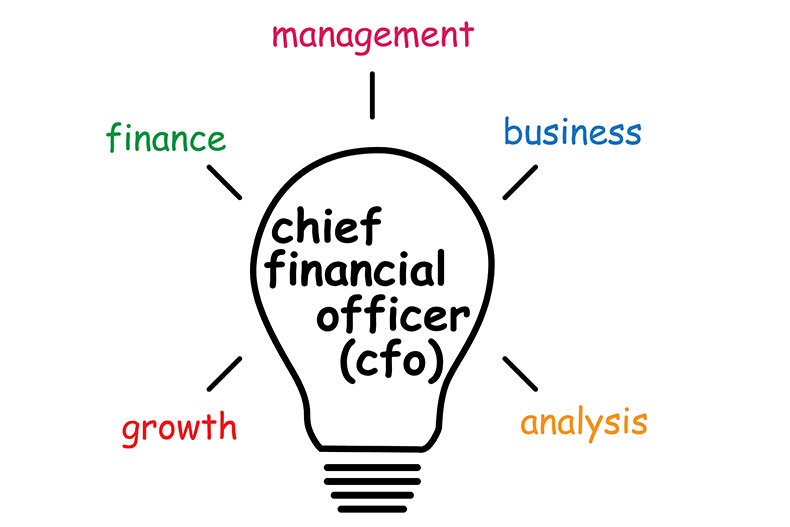Are you ready to conquer the boardroom through being a Chief Financial Officer? While it may be a daunting task to accomplish, especially for first-timers, being in this well-paid and forward-thinking position makes for a challenging and meaningful chapter in your career. Being a CFO can be tough, let alone being an efficient one for your company. For you to acquire this fast-paced position, you must know first what it takes to be one.
To better understand the depth of being a CFO, a fractional CFO or an interim CFO, it’s important to know first what it’s all about and what it takes to become one. Below are the CFO skills and qualifications, as well as the pros and cons of being one.

Being a Chief Financial Officer (CFO)
Being a CFO requires vast knowledge about the different financial actions of a company, such as financial planning and managing financial risks. Aside from this, a CFO is the senior financial manager responsible for reporting to the company’s highest management that usually includes the CEO. In particular, a CFO is a corporate executive job that entails record-keeping, directing, and managing the organisation’s finance or accounting team.
Usually, companies that hire CFOs are those that are already well-established in their respective fields. In some large companies, being a CFO is one of the highest positions one can acquire. Aside from the board of directors, the Chief Executive Officer (CEO), and the Vice President, the CFO is one of the top-level financial controllers whose responsibilities lie in overseeing financial planning and reviewing financial statements to better improve the company’s financial stability. To do this, the CFO must also know what financial landmines to avoid.
Due to the constant shift in the corporate world, the roles and responsibilities of a CFO also change to effectively adapt to the demands. Apart from these roles, some of the skills and qualifications of a CFO consist of:
-
-
- accounting skills
- strategy skills
- data skills
- leadership and management skills
-
Apart from this, the qualifications for becoming a CFO include:
-
-
- Master of Accounting for Financial Managers
- Master of Finance Management and Analysis
- Master of Public Administration
- Master of Science in Accounting
- Master of Business Administration
-
Most people think that being a CFO is one of the most stressful roles in any organisation. Aside from making sure that the company is at the optimal level, you also have to control financial risks, play managerial roles in the finance department, and contribute to the business leadership and strategy. Nonetheless, you can still experience the perks of being in this position, as well as the disadvantages that it brings, and they are as follows:
Pros
Higher Salary Rate
One of the major advantages of being a CFO involves a higher salary rate and stock options. After all the hardships and struggles that you’ll face as a CFO, nothing can ever be more comforting than the fact that all your hard work will eventually pay off. Annually, the average salary of a CFO can be as much as USD$130,000. Not to mention an amount of around USD$20,000 in bonuses, an additional amount of around USD$9,000 in profit sharing, and other substantial incentive compensation.
Aside from this, you may also be offered stock options, depending on the stability of your company and your performance. The financial gain this job can offer is also one of the reasons many are aspiring to acquire it, no matter how hard the process may be.
Prestige and Respect
As the company’s lead financial manager, you’re responsible for maintaining balance in the financial aspects of your company. You’re also expected to lead your company to progress and development. As an instrument to making more money, you can promote growth in your company. In the process of achieving your goals, your colleagues can also see everything that you do and appreciate them.
Aside from monetary gain, exemplary performance also equates to prestige and respect from your colleagues. This job not only allows you to showcase your expertise in the financial aspects of your company but also lets you receive admiration from your co-workers who may see your achievements and hard work.
Power
The saying that greater power comes with greater responsibility is highly applicable to this job. While many people may find it a little bit stressful, one can’t deny the fact that it can also offer a great sense of power and autonomy in everything that you want to do which you may not be able to do in any other job. This job may give you the power to make things happen and pursue your vision in ways that other people can’t. Also, you can effectively identify and pursue growth opportunities for your company’s development.
Cons
More Responsibility
Working for long hours is one of the downsides of being a CFO. As the senior financial manager, you have to ensure the quality of work of departments under your supervision. You may also experience the enormity of your responsibility to oversee the financial aspects of your company.
Accountability in Any Failure
As the CFO, you’re expected to keep the financial health of your company. However, there are times when you’ll encounter failure, and you’ll be held accountable for these occurrences.
Conclusion
Being a CFO requires a great sense of commitment to achieve your company’s goals. Like all other executive positions, a CFO is expected to lead the company to its progress. Aside from your responsibilities, you’re also given the chance to experience certain advantages, such as a higher salary rate, prestige, respect from your colleagues, and power which your position can offer.
This job also poses disadvantages like additional responsibility and accountability for any failure. Regardless of the cons, you should focus more on its perks to further motivate yourself to do better in this job.